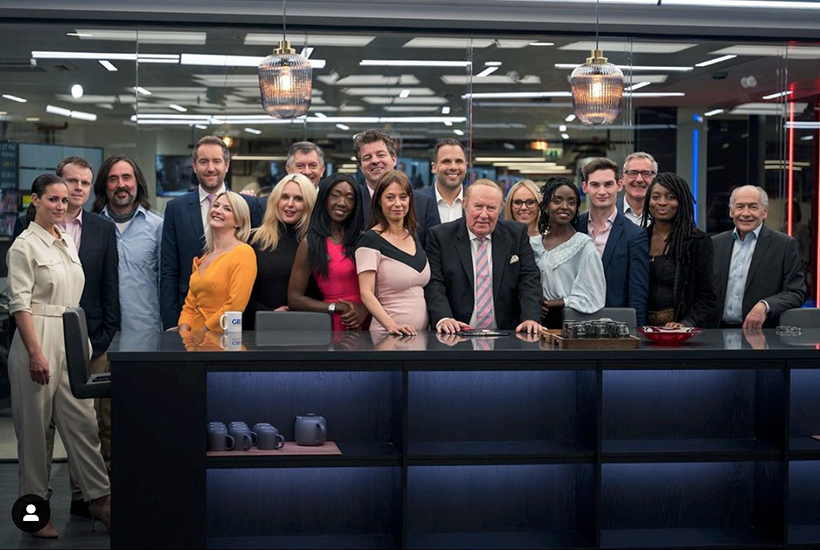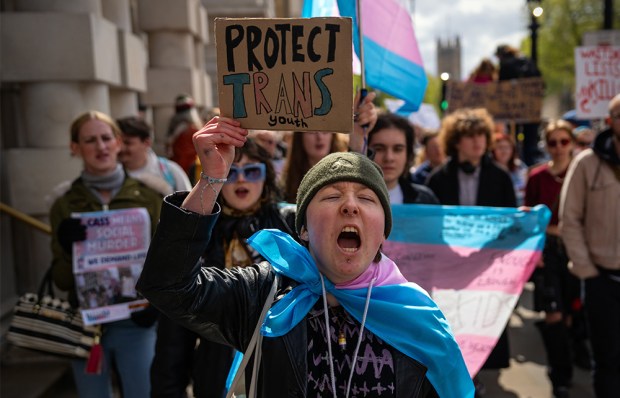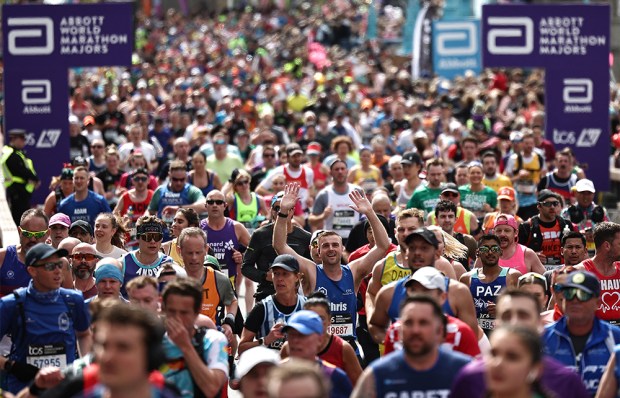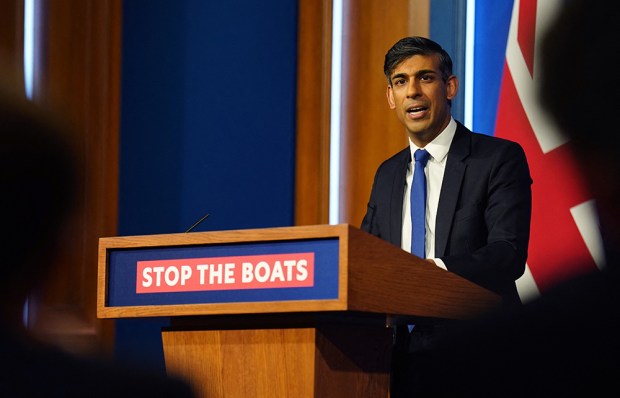A couple of decades back the Radio Society asked me to moderate a debate for its summer festival. ‘Between who?’ I asked them and was delighted when they replied: ‘It’s entirely up to you.’ I chose the charismatic hook-handed Muslim cleric Sheikh Abu Hamza al-Masri and the then leader of the British National party, Nick Griffin. They were quite big news at the time — but were not really allowed on the airwaves, still less television. Hamza wasn’t allowed on because ‘mainstream’ Muslim organisations objected and we always did what we were told by them. Griffin wasn’t allowed on because he was a ‘fascist’. In fairness, he got an occasional interview slot, but only on the condition that the interviewer could scream abuse at him and not let him say anything. This was the beginning of cancel culture, I think.
My point was simply that the general public had a right to hear the viewpoints of people in the news, regardless of how unpleasant their opinions might be. The debate went quite well, except that they agreed with each other about most stuff. I think old Abu won by a nose — he had a good, if harsh, turn of phrase. Skimming through the Daily Telegraph in the green room before the event, Hamza said to me: ‘Rod, I see your government has lowered the age of consent for homosexuals to the same as what it is for human beings.’ Feisty!
The point of the debate was ignored. Instead, over the following 20 years an ever greater number of individuals found themselves excluded from the national debate as the spectrum of opinion allowed to be broadcast narrowed and narrowed. Now we are in a situation where perfectly respectable scientists will be barred from the airwaves if, for example, they doubt the wisdom of that Swedish doom goblin, Greta Thunberg, or are less than sure that lockdown is the best way to combat the pandemic, or are worried about the possible side effects of the various Covid vaccines. Or at least they may be allowed on, briefly, but only once and only then if it is made clear that they are wrong by the presenters, or a ‘correct’ scientist has the final say. Never before have we so needed free and open public debate; never before has it been so constrained.
Meanwhile, you will not hear Tommy Robinson on your radio. Nor the excellent David Starkey. These are now non-people. If you are a journalist or a historian, you will not be asked to front a documentary if you believe that immigration should be more tightly controlled and that mass immigration has not necessarily improved our country — both views shared by the majority of people in the country, according to opinion polls — even if the documentary is about something else altogether. Nor if you believe that a human being with a vagina is most likely to be a woman.
Given this strangling of what the BBC and ITV and Channel 4 and increasingly Sky consider outré, disgusting opinions, it was obvious that at some point a kickback would occur, since the majority of the country do not remotely sign up to the mainstream media’s often contradictory and always facile world view. For sure, the media marketplace has changed and opened up while the technology has improved to the degree that it is far easier to launch a new TV or radio channel. But I would suggest that none of this would have happened without rapidly increasing public disaffection with the utter tendentious shit which they are being fed. They yearn for an alternative. This is evident simply from the enormous growth in podcasts, many of which pull in hundreds of thousands of listeners.
Then there is the fastest growing radio station in the country, TalkRadio — Anti-Lockdown Central — with a fine cast of jocks. Times Radio, meanwhile, was launched specifically as a ‘non-woke Radio 4’ (something which Hugo Rifkind and Mariella Frostrup have yet to grasp) and is performing well. To really challenge Radio 4, though, they need the moolah to commission the dramas, comedy and documentaries which, when commissioned by the BBC, are even more right-on than the news programmes. But these days I prefer it to Radio 4, especially Matt Chorley and the morning team of Stig Abell and Aasmah Mir.
And now we have GB News launched by Andrew Neil. How the BBC’s director-general Tim Davie must hang his head in despair. For the past decade the corporation has been copiously busy digging its own grave. Why on earth would any broadcasting organisation wish to get rid of Neil, easily the best political interviewer the country has? And why force out Jeremy Clarkson, a peerless and hugely popular broadcaster? The answer is the same as before: the two men are perceived not to share the same political beliefs as the BBC monkeys who employ them. Hall also got rid of the utterly adored Sue Barker, because she was old and white. They hate the old and white, despite the fact that almost all of them are.
Neil now has his revenge. I suspect that GB News will do very well indeed, despite a bumpy opening. OK, I would rather they had chosen someone other than Helen Keller to design the sets and do the sound balancing stuff. But these are simple teething problems which will be forgotten within a month or so. Neil also needs to decide if his station is bracingly centre-right, or simply neutral in a ‘let a thousand flowers bloom’ sense. You can be one or the other, but you can’t be both — I would go for the latter, for greater longevity. It can be very difficult to chip away at long established brand loyalty, which is why the BBC, the Church of England and the Labour party still exist despite the gradual desertion of millions. But GB News, Times Radio and TalkRadio will do it in the end — and we will be a slightly more democratic country as a consequence.
Got something to add? Join the discussion and comment below.
Get 10 issues for just $10
Subscribe to The Spectator Australia today for the next 10 magazine issues, plus full online access, for just $10.
You might disagree with half of it, but you’ll enjoy reading all of it. Try your first month for free, then just $2 a week for the remainder of your first year.















Comments
Don't miss out
Join the conversation with other Spectator Australia readers. Subscribe to leave a comment.
SUBSCRIBEAlready a subscriber? Log in